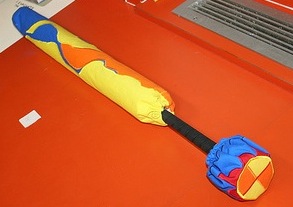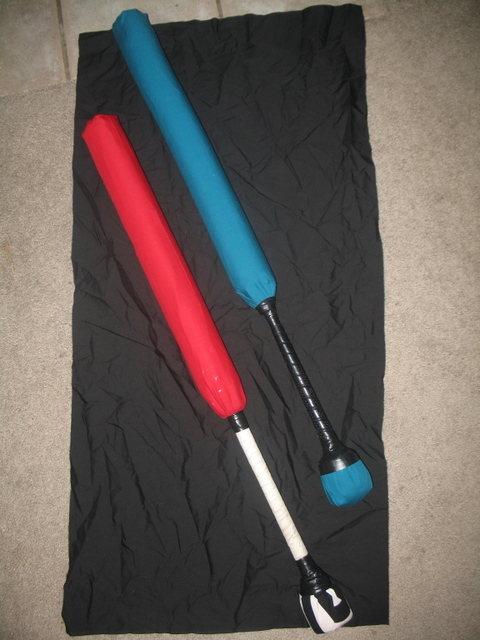Difference between revisions of "Sword covers"
m (added category) |
|||
| Line 18: | Line 18: | ||
[[Category:Amtgard Resources]] | [[Category:Amtgard Resources]] | ||
| + | [[Category:Unformatted Resources]] | ||
Latest revision as of 03:02, 30 March 2016
There are a number of ways to find or create a decent sword cover.
Contents
Find
Tube socks make absolutely horrid covers, they are heavy and tend to remove skin with drag shots. Nylon tights are commonly seen on ultra light weapons as they are extremely light, however the seventh edition rulebook effectively has outlawed them by requiring covers be durable and opaque to be legal, Nylons are neither. Trouser socks, however, are both perfectly legal, and preferably light, though they're lifespan is considerably shorter compared to their cloth brethren.
Build
Cut a piece of broad cloth 3 inches longer than the blade of your weapon and 8 inches wide, sew the long sides of the cloth together to form a tube. Sew one end closed. Ta-Da, you have a cover. Some people will sew the open end's hem such that it can hold a draw string rather than rely on tape to hold it on.
Recent experiments have used "rip stop" fabric, as used in kite design. Light, strong, and non-porous, rip stop is said to reduce both weight and wind resistance.
Be Awesome
Sword covers can be decorated with all the same things that other fabric can; paint, applique, dye, and anything else you can think of. Be careful with the textures you add, you don't want to put anything on there that makes the sword rough or harder on the skin. As of 2010 Plastidip has been approved for playtesting on non striking surfaces.
Links
- All manner of socks some with Very Cool prints
- Kitebuilder.com's fabrics page

